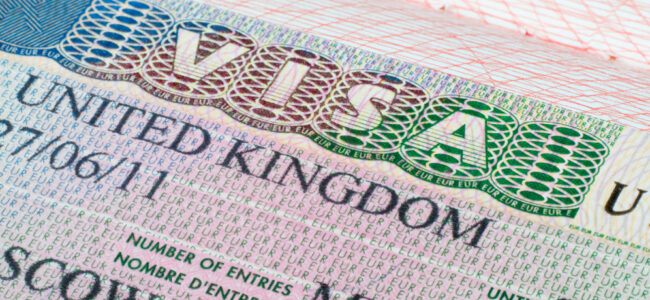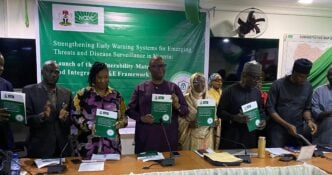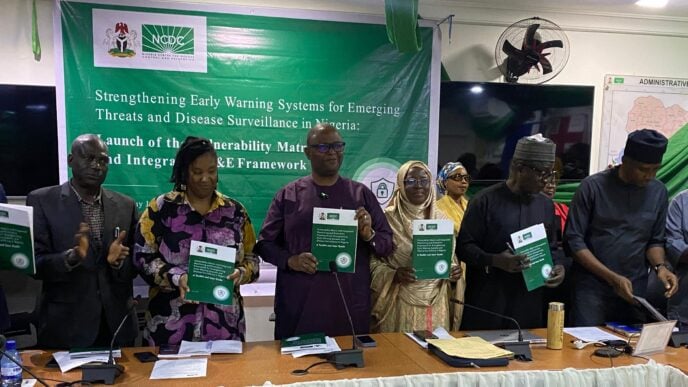The Islamic State West Africa Province (ISWAP), a jihadist terrorist group, reportedly earns about $191 million (about N291 billion) annually largely from taxes levied on fishers and livestock owners using its string of controlled islands in the Lake Chad region.
This is more than the $18.4 million (N28.3 billion) revenue Borno realised in 2024.
The Lake Chad areas controlled by ISWAP include Niger Republic, Chad, Cameroon, Burkina Faso, Mali, and parts of northern Nigeria.
The revenue does include earnings from kidnapping in other parts of Nigeria or the reward payments made by ISIS-central for equipment it captures from the Nigerian army, or spoils of war.
Advertisement
The New Humanitarian (TNH) calculated the group’s earnings in USD from the multiple taxes imposed on the fishers, livestock owners, and farmers in its territory detailed in a report published July 24 after speaking to multiple sources including fishers and former ISWAP clerics and officials.
ISWAP’S TAXATION CATEGORIES
According to the investigation, ISWAP administers three broad categories of taxation: zakat, haraji and darayib.
Advertisement
ISWAP collects zakat from cattle-owning farmers worth roughly $3.7 million (about five billion naira) a year. The tax ranges from 3.3 percent to one percent, depending on herd size – the lowest rate levied on herds of more than 60 to 80 animals.
Haraji refers to the payments made by non-residents who enter ISWAP-controlled territories temporarily for livelihood purposes.
Payment encompasses both the entry permit fees required to access these territories and the taxes levied on the economic activities conducted within them, amounting to around $183 million (about N290 billion) each year.
Haraji is primarily paid by fishers, fish dealers, and farmers – with the fishing sector generating the bulk of the revenue.
Advertisement
For ISWAP, haraji serves as a key source of income from the external visitors who benefit economically from the resources within its territory but do not permanently reside there.
Before entry into ISWAP’s territory, every individual is required to pay a $13 fee (nearly N20,000).
Those with cash pay immediately at the first checkpoint before being allowed to proceed. Those without the money are permitted to enter after making a pledge to pay following their business activities. In such cases, the group leader is held accountable for ensuring that all deferred payments are settled.
Once inside, fishers are required to pay additional fees ranging from $13 to $196 (almost N300,000) to be in allocated fishing areas covering an entire fishing season, usually from February to June.
Advertisement
The amount depends on the size of the area requested and the fishing method they intend to use.
Before exiting the territory with their goods, each fisher or fish trader is charged a fishing tax of around $2.60 (about N4,000) per 100 kilogram carton of fish.
Advertisement
During a normal fishing season ISWAP can generate around $156,000 (about N283 million) from entry permits alone, the investigation noted.
Fishers are also mandated to pay another $2.60 per carton before their harvests can be transported off the islands. These cartons can be as many as 3,500.
Advertisement
However, disruptions such as attacks by rival Boko Haram fighters, military operations, or temporary suspensions of fishing by ISWAP – often due to suspicions of fishers collaborating with the security forces – can significantly affect income.
Darayib, a more flexible form of taxation, is paid by everyone residing on the islands, including the ISWAP leadership, at the discretion of the group.
Advertisement
TNH said this can realise $4.8 million (about N7.3 billion).
‘ISWAP RIDING ON GOVERNANCE GAPS TO SPREAD INFLUENCE’
The TNH investigation noted that ISWAP has presented itself as an alternative to the state by filling the administrative gaps left by the authorities, particularly in remote areas.
“By carrying out governance activities, ISWAP demonstrates how jihadist organisations attempt to legitimise themselves before the people, making it easier to recruit and generate revenue, while simultaneously making it harder for the government to uproot them,” the report noted.
By providing free services including the provision of potable water – usually through the construction of boreholes – and generators to pump the water, healthcare, and social bridges including mediating in family and communal disputes, residents soften to the group.
The group is said to also maintain food security within its controlled areas by distributing seeds and pesticides to farmers free of charge, but restricting them from selling their produce outside ISWAP territories.







